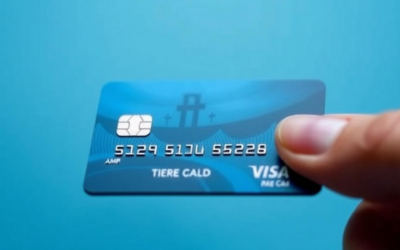Understand how bank transfers work and why they matter.
In the modern financial landscape, bank transfers enable smooth and secure transactions across distances. Understanding the intricacies of bank transfers, including their types, processes, and benefits, is essential for individuals and businesses. This article delves into the mechanics of bank transfers, their significance in everyday finance, and how they facilitate efficient and reliable money movement globally. Knowing how bank transfers work can enhance your financial management, whether you’re a business owner managing payroll or an individual paying an invoice.
What is a bank transfer?
A bank transfer is moving funds from one account to another. It can happen in the same or across different banks through online banking, bank transactions, and mobile banking apps. Bank transfers are secure and convenient. They enable remote management of financial transactions. Location does not affect the validity of sent messages. They are crucial in modern finance. They allow quick, reliable money transfers across distances. They have strong security to protect sensitive data and prevent fraud.
Types of bank transfer
There are several types of bank transfers.Each type is meticulously crafted to cater to distinct requirements andpreferences. Digital bank transfers are known for their speed and ease. They are done through mobile apps or websites. Users just need to log into their bank’s website. They enter the recipient’s info and make a secure transfer whenever they want. In the modern age, phone bank transfers are streamlined. Branch transfers remain an option for those who prefer in-person transactions. You can complete a form and hand it to a bank representative for processing.
How can invoices be paid via bank transfer?
When paying an invoice via bank transfer, the process begins with receiving the invoice, which includes the merchant’s bank details and a unique transaction reference code. The customer then instructs their bank to send the specified amount to the merchant’s account, including the reference code for tracking. The funds are processed through clearing houses, ensuring accurate and prompt transaction completion. The merchant confirms the payment using the reference code upon receiving the funds, facilitating a secure and direct transaction.
How do bank transfers work globally?
Bank transfers facilitate the movement of funds between accounts through a secure process initiated by the sender’s bank. Once the sender provides the recipient’s details and the amount, the bank system securely transfers the funds to the recipient’s account. This efficient process is crucial in daily finance, supporting transactions ranging from personal payments to global business.
How long do bank transfers take?
The length of time it takes for a bank transfer to complete can vary depending on the specific type of transfer and other relevant factors. BACS transfers, for example, take up to three working days and are suitable for non-urgent payments. CHAPS transfers, however, are designed for urgent transactions, ensuring same-day delivery. Faster Payments can transfer funds within two hours, assuming both banks support it. The transfer speed can also be affected by the destination and any necessary internal bank checks, which ensure the secure and timely arrival of funds.
What is the difference between wire transfers versus bank transfers?
It’s important to distinguish between wire transfers and bank transfers. Bank transfers are direct transfers of funds between bank accounts, ideal for domestic transactions where simplicity and direct access are prioritised. Wire transfers involve an intermediary, typically the sender’s bank, which communicates transaction details to the recipient’s bank. This method is preferred for international transactions requiring secure information exchange before funds transfer. Each method has its advantages, depending on the transaction’s requirements for speed and security.
How business owners can use bank transfers?
For business owners, bank transfers are vital for several functions. They streamline the movement of money between accounts, simplify customer payments, and ensure timely tax payments directly from bank accounts. They also allow for quick settlements with suppliers, which helps maintain good business relationships and operational continuity. Overall, bank transfers significantly ease financial management and support business growth.
Why bank transfers are important for business owners?
Bank transfers are essential for business operations globally, facilitating timely bill payments and helping businesses meet their financial obligations efficiently. They enable swift fund transfers, which are crucial for managing payroll, paying suppliers, or handling invoices. Additionally, bank transfers aid in effective cash flow management and support businesses in making significant investments and expanding operations, proving to be more than just a convenience but a vital tool for maintaining financial health and operational efficiency.
What details are needed for a bank transfer?
Certain details are required for a smooth bank transfer process. The recipient’s account number, sort code, and full name are necessary for domestic transfers. Additional information, such as the IBAN or recipient’s account number, the recipient’s address, and the receiving bank’s BIC or SWIFT code, is needed for international transfers. These details help navigate the funds through the correct channels and ensure compliance with international banking regulations.
What facts about bank transfers you might don’t know?
Bank transfers are a cornerstone of modern finance, but some lesser-known aspects are worth exploring. Did you know bank transfers can be scheduled for future dates, allowing for better financial planning? Not all bank transfers are instant; some may take a few days, especially international ones, due to varying banking regulations and time zones. Interestingly, bank transfers are often more cost-effective for more considerable sums than other payment methods. Lastly, the security measures for bank transfers, including encryption and multi-factor authentication, make them one of the safest ways to move money.
Are bank transfers safe?
Bank transfers are generally considered safe due to their direct nature and the involvement of established clearing houses that verify and facilitate fund movements. However, they are not without risks, such as potential data entry errors or fraud during the transfer process. Thus, while secure, it is crucial to carefully verify all details and use trusted channels to minimise risks effectively.
Simplify your business finances today
Set up a low-cost business account in just 5 minutes with OneMoneyWay so you can focus on growth for your business.
FAQs:
What is the process of payment via bank transfer?
Customers initiate payments by selecting bank transfer at checkout. They receive the merchant’s bank details and a unique transaction reference code. They then instruct their bank to send the specified amount to the merchant’s account, including the reference code for tracking. Funds are processed through clearing houses, ensuring accurate and prompt transaction completion.
How long does it take for bank transfers to complete?
The duration varies: BACS transfers take up to three working days, suitable for non-urgent payments. CHAPS transfers ensure same-day delivery for urgent transactions, while the Faster Payments service can transfer funds within two hours, assuming both banks support it. Transfer speed may also depend on destination and internal bank checks.
Why are bank transfers crucial for business operations?
Bank transfers are vital for business operations globally. They facilitate timely bill payments, manage payroll, pay suppliers, and handle invoices efficiently. They also support cash flow management, aid in making investments, and contribute to operational efficiency and growth.
How can business owners utilise bank transfers effectively?
Business owners use bank transfers to streamline money movements between accounts, simplify customer payments, ensure timely tax payments, and settle payments with suppliers promptly. This supports maintaining business relationships and operational continuity.
What information is needed for a smooth bank transfer process?
For domestic transfers, necessary details include the recipient’s account number, sort code, and full name. For international transfers, additional information such as the IBAN or recipient’s account number, the recipient’s address, and the receiving bank’s BIC or SWIFT code is required to comply with international banking regulations.
Are bank transfers safe for financial transactions?
Bank transfers are generally safe due to their direct nature and the involvement of established clearing houses that verify and facilitate fund movements. However, potential risks such as data entry errors or fraud during the transfer process require careful verification and using trusted channels to minimise risks effectively.







